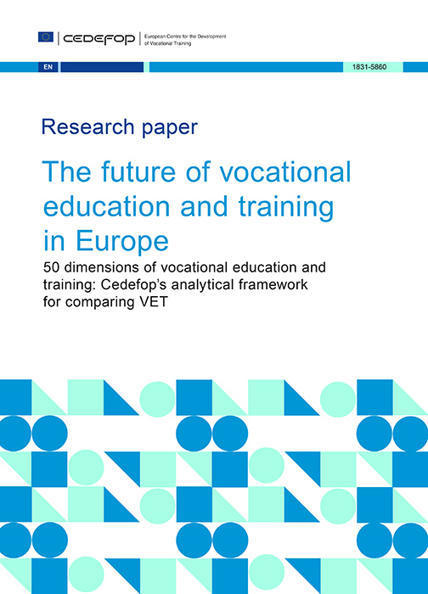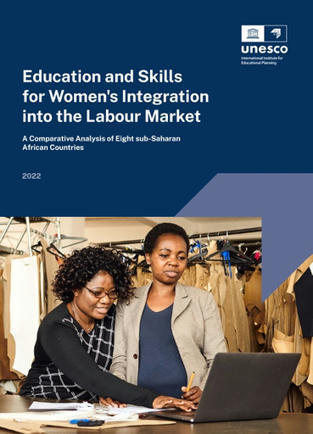 Your new post is loading...
 Your new post is loading...
The Newsletter For more information on DACUM : here
Microcredentials are an innovative way to demonstrate proficiency in skills and competencies and offer a potentially transformative tool to address skills gaps in Canada’s labour market and future skills needs. Yet, they are also a relatively new innovation, and stakeholders need to overcome a number of challenges and nurture growth in the microcredential ecosystem in order to underpin their widespread use and adoption.
eCampusOntario has developed, in collaboration with its partners, the Micro-credential Principles and Framework as a foundation for building microcredential projects in Ontario. This work has played an important part in efforts to build a consensus of definition in Canada and to address current needs in the emerging Canadian microcredentials ecosystem. The Principles and Framework is designed to bridge gaps in stakeholder understanding and create a unified microcredential ecosystem in Ontario.
This report presents a holistic approach to understanding and comparing vocational education and training (VET) systems.
The approach has been developed jointly by a group of interdisciplinary VET researchers over a 5-year period as part of Cedefop's research on the future of VET and has been reviewed several times. The framework introduces 50 dimensions for analysing VET systems, as well as parts of them, structured according to three overlapping main perspectives: epistemological and pedagogical, education system, and socioeconomic or labour market. The framework is particularly suited to ‘clearing the ground’ for policy work and provides a model for how research can support policy. This model can be flexibly adapted and applied in any comparative research or international policy learning activity related to VET.
This systematic review and meta-analysis identified early evidence quantifying the disruption to the education of health workers by the COVID-19 pandemic, ensuing policy responses and their outcomes.
Methods
Following a pre-registered protocol and PRISMA/AMSTAR-2 guidelines, we systematically screened MEDLINE, EMBASE, Web of Science, CENTRAL, clinicaltrials.gov and Google Scholar from January 2020 to July 2022. We pooled proportion estimates via random-effects meta-analyses and explored subgroup differences by gender, occupational group, training stage, WHO regions/continents, and study end-year. We assessed risk of bias (Newcastle–Ottawa scale for observational studies, RοB2 for randomized controlled trials [RCT]) and rated evidence certainty using GRADE.
Results
Of the 171 489 publications screened, 2 249 were eligible, incorporating 2 212 observational studies and 37 RCTs, representing feedback from 1 109 818 learners and 22 204 faculty. The sample mostly consisted of undergraduates, medical doctors, and studies from institutions in Asia. Perceived training disruption was estimated at 71.1% (95% confidence interval 67.9–74.2) and learner redeployment at 29.2% (25.3–33.2). About one in three learners screened positive for anxiety (32.3%, 28.5–36.2), depression (32.0%, 27.9–36.2), burnout (38.8%, 33.4–44.3) or insomnia (30.9%, 20.8–41.9). Policy responses included shifting to online learning, innovations in assessment, COVID-19-specific courses, volunteerism, and measures for learner safety. For outcomes of policy responses, most of the literature related to perceptions and preferences. More than two-thirds of learners (75.9%, 74.2–77.7) were satisfied with online learning (postgraduates more than undergraduates), while faculty satisfaction rate was slightly lower (71.8%, 66.7–76.7). Learners preferred an in-person component: blended learning 56.0% (51.2–60.7), face-to-face 48.8% (45.4–52.1), and online-only 32.0% (29.3–34.8). They supported continuation of the virtual format as part of a blended system (68.1%, 64.6–71.5). Subgroup differences provided valuable insights despite not resolving the considerable heterogeneity. All outcomes were assessed as very-low-certainty evidence.
Conclusion
The COVID-19 pandemic has severely disrupted health worker education, inflicting a substantial mental health burden on learners. Its impacts on career choices, volunteerism, pedagogical approaches and mental health of learners have implications for educational design, measures to protect and support learners, faculty and health workers, and workforce planning. Online learning may achieve learner satisfaction as part of a short-term solution or integrated into a blended model in the post-pandemic future.
Context: International comparative research on Vocational Education and Training (VET) is gaining importance, as global cooperation and mutual learning in VET grows. However, it is characterized by a high degree of complexity, due on one hand, to the heterogeneity of the VET sector, and on the other hand to the unique challenges of international comparisons. In addition, comparative research projects are increasingly conducted in the form of cross-border collaborations, which have their own particular organizational and methodological considerations, opportunities, and challenges. This paper presents an example of a cooperative research process, aimed at investigating the complex phenomenon of the competence-based approach in Russian and Chinese VET. In providing an example of developing an instrument for curriculum analysis and comparison, we discuss and reflect on the methodological and organizational peculiarities and challenges of the research process conducted collaboratively by an international team.
Method: The instrument for analysis and comparison of curricular documents, was developed in an iterative multi-stage process, combining deductive and inductive steps. The embeddedness of the elements of a competence-based approach in curricular documents is investigated, using qualitative content analysis. To develop a coding frame, we started with a comprehensive partially systematic literature review of international, Russian and Chinese discourses on competence-based curricula. The frame was built on the selected model of competence-based education, and on accumulated results of the literature analysis of national discourses. Furthermore, during the first coding process, an iterative adaptation of the developed instrument took place.
Results: The result of this process was the development of an analysis instrument which, on the one hand, is well-adapted to each national context and, on the other hand, allows a comparison of results along the same dimensions of analysis, in our case, elements of the competence-based approach in curriculum.
Conclusion: Developing an analysis framework for a cross-cultural comparative investigation of such a diffuse and heterogeneous construct as the competence-based approach, can pose a methodological challenge for an international team of researchers. However, an effective application of own team resources such as proficiency in different languages, insider and outsider perspectives, along with continuous intensive communication and a flexible, iterative research process, allows development of a well-adapted analysis instrument for international comparison.
Extensive prior research explores how to develop good TVET systems. However, while a learner-centred pedagogy is promoted in primary, secondary and higher education systems, there is limited information on how to implement the specificities of this pedagogy in TVET institutions, especially in Asia-Pacific. To address this gap and to support the preparation of its 2022–2024 work plan, the UNESCO Asia-Pacific Regional Bureau for Education implemented a study on learner-centred TVET teaching in Asia-Pacific from June to September 2021.The first part of this study was a literature review of TVET teaching and learner-centred approaches in Europe and Asia-Pacific that showed that a learner-centred approach is based on students’ participation, engagement, and autonomy that supports their professional development and assimilation. Then the situation in six selected countries (China, Republic of Korea, Samoa, Sri Lanka, Thailand, and Uzbekistan) was analysed. Each country report followed the same research framework, including the application of a gender lens, and provided examples of cases and situations corresponding to components and criteria defined in this study for a learner-centred TVET pedagogy.The proposed concept of learner-centred TVET teaching is outlined in Table 1:Table 1: Proposed Learner-centred TVT teaching conceptInputThree components for TVET teaching situationsNational policies supporting learner-centred TVET teaching and providing autonomy to the institution.Engagement and participation of learners through various learning situations.Autonomy of learners on content and method of learning with teachers’ guidance and support.Outcome-based activities that integrate skills and knowledge to prepare for a professional life.Curriculum based on competencies/learning outcomes that integrate core and functional knowledge and skills.A culture supporting two-way communication between teachers and students, as well as collective activities.Teachers trained on learner-centred approaches during pre-service and in-service teacher training.A variety of teaching materials integrating digital technologies.Learner-centred Teaching in Technical and Vocational Education and Training: Perspectives and Reviews of Six Asia-Pacific Countries8
The limited use of active learning methods that involve critical evaluation of practices and their outcomes risks limiting the ability of vocational teachers in Kenya to transform and adopt better practices. It is recommended that vocational teachers in Kenya are encouraged to adopt a broad conception of teacher CPD that embraces collaborative, reflective, and practice-based learning.
The COVID-19 pandemic further exacerbated the long-standing skills shortages in the health workforce across countries. Equipping health workers with the right skills is essential to respond to future health crises, to prepare for increasing use of digital technologies, and to plan for demographic change. This joint report by the OECD and ILO aims to enable more resilient health workforces by helping countries to assess future demand in terms of both numbers of health workers and skills needs, and to prepare appropriate policy responses. The report provides a comparative overview of practices in 16 countries to anticipate future skill needs in the health workforce, and of how such information is used by policy makers and social partners to foster a better alignment with labour market needs. Analysis is based on interviews with institutions that are responsible for anticipating skill needs in the health workforce, a virtual peer-learning workshop and desk research.
A study among 113 South African engineering students from the technical and vocational education and training (TVET) college sector has revealed that the majority (79) believe that their qualification is “undervalued and does not guarantee employment”. However, 34 participants maintained that it is in demand in the labour market.
The directory is an ongoing initiative which we will, with your help, update with additions and corrections.
|
Bite-sized learning is gaining traction as modern learners are looking for quick ways to upskill and reskill in the workforce. What’s needed is a collaborative and creative approach to shifting how programming is developed, and how it’s translated to employers.
On this episode, Margot Baron, Google Cloud Certifications and Credential Lead at Google, discusses the transition to a skills-focused industry, and how to take a collaborative approach to program development in order to meet workforce needs.
This paper seeks to shed light on the current challenges faced by eight selected sub-Saharan African countries, namely Burkina Faso, Chad, Mali, Mauritania, Mozambique, Niger, Nigeria, and Sierra Leone, in achieving the integration of women into the labour market through education and training.
This paper aims to present a diag-nosis of women’s situation in terms of their integration into the labour market. It will focus mainly on the role played by educa-tion and training in attaining gender parity and identify practices that will potentially address the marginalization of women in the labour market.Abstract
Mind-mapping is a visual brainstorming technique you can use to tap into the power of the brain, look at a subject in its entirety and organize around key learning objectives.
Mind-mapping is a tool that helps linear and lateral thinkers expand their sightlines beyond what comes naturally. Learn to mind-map and you’ll energize your training design and delivery!
Teachers and trainers are among the “key actors” (CEDEFOP, 2022a) involved in providing relevant and meaningful learning experiences to learners in Technical and Vocational Education and Training (TVET). They are seen to be “central” to TVET (OECD, 2021) and they work in a challenging context characterised by innovation, globalisation, advancing technology and a changing society (CEDEFOP, 2022a).
In recent years, disruptions caused by technology, climate, migration[1], political instability and more recently the Covid-19 pandemic have affected the economy, labour markets, and hence education. TVET does not exist in a bubble and has also been affected, making the work of teachers and trainers, who are entrusted with the future of millions of students around the world, more challenging.
In 2015, the United Nations (UN) member states adopted the 2030 Agenda for Sustainable Development and established 17 Sustainable Development Goals (SDGs) to provide “a shared blueprint for peace and prosperity for people and the planet, now and into the future” (UN, 2015)[2]. SDG 4 aims to ensure inclusive and equitable quality education and to promote lifelong learning opportunities for all. Of relevance to TVET are Targets 4.3, 4.4 and 4.5, which directly reference vocational education, hence making the role of TVET teachers and trainers crucial to the achievement of this ambitious agenda.
Being key actors in, and central to TVET, teachers and trainers are often discussed by policymakers, academics, researchers, TVET leaders and professionals, industry partners, students and the general public. Some recurrent themes of these discussions include: their required knowledge, skills, competence and attitudes; the working tasks they carry out; the effectiveness of their work with students; the need for their professional development and learning; their readiness to adapt to continuous changes; and the impact of their work on the quality of TVET.
This article examines different profiles of TVET teachers and trainers at a global level and provides an insight into the TVET teachers at the centre of the ongoing discussions and reforms. It provides a context for the important discussions on these key actors in TVET. The article presents some data on the population of TVET teachers and trainers according to criteria such as: job title; gender; age; career stage; global region; vocational area; level of education; pre-service training; in-service training; involvement in industry; and dual professionalism.
Amid the many uncertainties that this new year brings, we can make one prediction with confidence: In 2021 – and beyond – many Canadians will need some kind of training to ensure they have the skills needed to succeed in their current job or to find a new one.
However, as of today, Canada has no information system that would help workers in need of reskilling to find suitable education and training options that could provide sought-after skills.
Today, every industry is calling for their workforce to develop new skill sets due to the dynamic of technological change. Every country needs to prepare its Technical and Vocational Education and Training (TVET) sector for providing the required skills in the new industrial revolution (IR4.0). It is vitally important to assess TVET academics’ awareness and perceptions of IR4.0 and to ascertain how prepared they are to strategically and effectively manage work-based learning. Which factors have an influence on the situation? A survey based on 16 structured questionnaires was devised to measure the awareness, perception and preparation of 156 respondents, including TVET managers, teachers and students from different TVET institutions in Myanmar. Gender, major study, nature of employment and type of school were considered as influencing factors. Results were presented quantitatively for discussion and confirmed that gender, major study, nature of job and school influenced the awareness, perception and preparation of TVET academics. Strategic plans and reforms can be effectively introduced for future skills development in work- based learning scenarios which are relevant to major study, job nature and school nature.
Keywords: Technical education and training, Industry 4.0, Technological change, Technological literacy, Skills development
Development of assessment forms in vocational education helps educators to plan the education, teach and evaluate their students. Assessment is also essential for helping students to develop the personally and the professionally skills. Assessing students’ progress, success and competency in vocational education are essential for educators and employers.
Employer-sponsored training is a critical component of Canada’s overall skills development landscape, which includes formal and informal education and skills training. It helps bridge gaps between formal education and the specific skills required in workplaces, including gaps that emerge from technological, regulatory, and other economic and social changes.
Despite the importance of employer-sponsored training, little is currently known about how much Canadian employers invest in training, what kinds of training they offer, how it is delivered, what impacts it has, or how investment and opportunities differ across sectors, regions, and employee characteristics. Canadian data on the levels, kinds, trends, and impacts of employer-sponsored training are largely unreliable, out of date, and/or ill-suited for comparison across time and jurisdictions. Developing even a rough picture of the employer-sponsored training ecosystem in Canada is difficult.
This report draws on available literature and data to develop the best possible picture of employer-sponsored training levels and trends; types and modes of delivery; what motivates and hinders training investment; and how investment is distributed across sectors, types of firms, and learners.
This report highlights the challenges faced and lessons learnt by Employment Ontario providers in transitioning from in-person to remote service delivery and how this could be applied in a post pandemic world of learning and training.
The report offers insight into how priorities have evolved over time and helps us see emerging trends and challenges, including those related to the COVID-19 pandemic.
Key takeaways:
COVID-19 has shifted the skills employers are looking for. While human skills, such as communication, empathy, and the ability to work well with others, are still as critical as ever, the demand for technical skills is growing.
Employers are generally confident about their ability to hire and replace workers, but opportunities exist to find new ways to recruit, train, and develop future workers, including recruiting more recent immigrants.
Canada’s leading employers are looking to post-secondary institutions to produce new graduates with the skills they need, and are willing to work with them to ensure that graduates are equipped to succeed.
Employers view work-integrated learning (WIL) as the best way to develop, recruit, and transition new graduates into the workplace.
Companies continue to invest in employee training and development, despite the added costs of the pandemic.
Canada’s businesses are willing to pay for worker upskilling and reskilling, but many signal they are struggling to develop tailored programming. Opportunities exist for increased collaboration with post-secondary institutions to address these needs.
|



 Your new post is loading...
Your new post is loading...






















